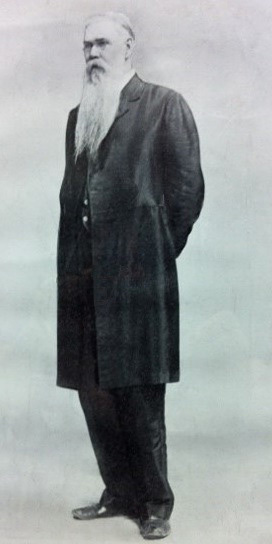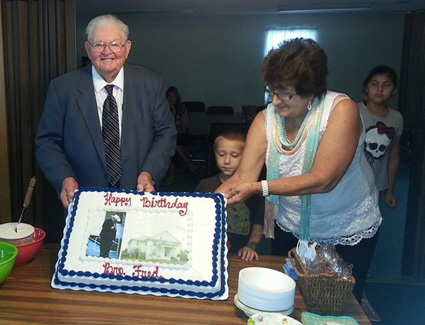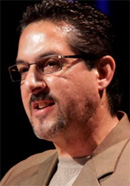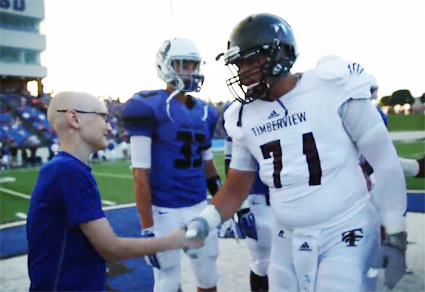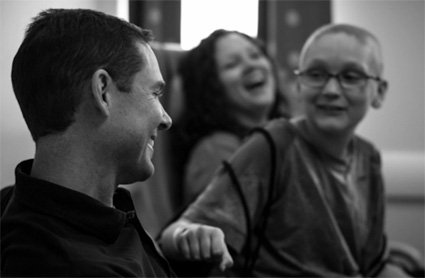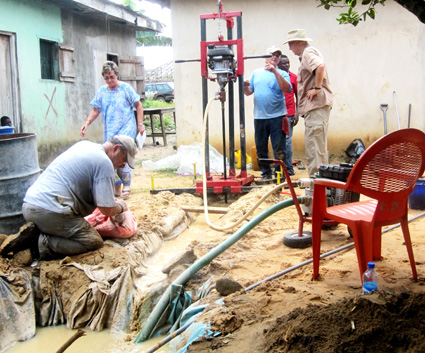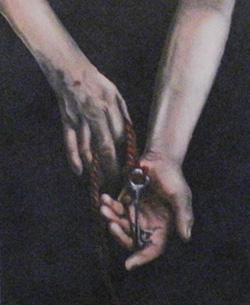The following information is provided in compliance with the bylaws of the Baptist General Convention of Texas. Nominations to be considered by messengers to the BGCT annual meeting, Nov. 16-18 in Waco, are presented by the Committee on Committees, Committee to Nominate Executive Board Directors and the Committee on Nominations for Boards of Affiliated Ministries.
Report from the Committee on Committees
Committee on Nominations for Boards of Affiliated Ministries
2017 Term
Carmen Estrada, First Baptist Church, El Paso
Brian Hill, First Baptist Church, Littlefield
Linda James, First Baptist Church, Palestine
Frances Jordan, The Fort Bend Church, Sugar Land
Helen Reese, First Baptist Church, Cuero
2016 Term
Heather Thielemann, First Baptist Church, Brenham
2015 Term
Al Childs, Park Cities Baptist Church, Dallas
Kay Smith, First Baptist Church, Ballinger
Committee to Nominate Executive Board Directors
2017 Term
James Freeman, Trinity Baptist Church, Harker Heights
Virginia Kreimeyer, Austin Baptist Church, Austin
Laura Shirey, First Baptist Church, Canton
Steven Young, The Cross Church, Tyler
2015 Term
Doug Simon, Inglewood Baptist Church, Grand Prairie
Report from the Committee to Nominate Executive Board Directors
New Executive Board Director Nominees
2017 Term
Howard Anderson, Singing Hills Baptist Church, Dallas
Donald Bean, Calvary Baptist Church, Nederland
Donna Burney, First Baptist Church, Woodway
Buford Duff, First Baptist Church, Levelland
Michael Evans, Bethlehem Baptist Church, Mansfield
Zelma Irons, Colonial Hills Baptist Church, Snyder
Annette Miller, First Baptist Church, Lewisville
Dana Moore, Second Baptist Church, Corpus Christi
Gene Payne, Eastern Hills Baptist Church, Garland
Jimmy Reynolds, Trinity Baptist Church, Mt. Pleasant
Directors to be Nominated for Second Term
2017 Term
Troy Allen, First Baptist Church, College Station
Betty Arrell, Austin Baptist Church, Austin
Kenneth Barnes, Gambrell Street Baptist Church, Fort Worth
Alfredo Benavides, Iglesia Bautista Stonegate, Alice
Nathan Buchanan, First Baptist Church, Mineral Wells
John Crowe, River Bend Baptist Church, Fulshear
Chuck Crowson, First Baptist Church, Lufkin
Pam Davis-Duck, First Metro Church, Houston
Doug Diehl, Crossroads Baptist Church, San Antonio
Wendy Frizzell, Southern Oaks Baptist Church, Tyler
Mike Harkrider, First Baptist Church, Boerne
Stephen Jackson, Central Baptist Church, Carthage
Grant Lengefeld, First Baptist Church, Hamilton
Mark Neeley, First Baptist Church, Mineola
Larry Post, Sugar Land Baptist Church, Sugar Land
Richard Rogers, University Heights Baptist Church, Huntsville
David Russell, First Baptist Church, Amarillo
Vernon Stokes, First Baptist Church, Midland
Mary Valerio, Primera Iglesia Bautista Kinwood, Houston
Bedilu Yirga, Ethiopian Evangelical Church, Garland
Directors to be Nominated to Fill Vacancies
2016 Term
Charles Greenfield, First Baptist Church, Monahans
Patsy Cochran, First Baptist Church, Gonzales
2015 Term
Xiomara Martinez, First Baptist Church, El Paso
Report from the Committee on Nominations for Boards of Affiliated Ministries
Baptist University of the Americas
2017 Term
Joseph Brake, Trinity Baptist Church, San Antonio
Luis Campos, South Main Baptist Church, Houston
Ruben Chairez, Primera Iglesia Bautista, Del Rio
Van Christian, First Baptist Church, Comanche
Rhoda Gonzales, North Dallas Family Church, Dallas
Elizabeth Hanna, Calder Baptist Church, Beaumont
Jesse Rincones, Alliance Church, Lubbock
2016 Term
Dora Fast, First Baptist Church, Cotulla
Baylor University
2018 Term
Joel Allison, Park Cities Baptist Church, Dallas
Linda Brian, First Baptist Church, Amarillo
Jennifer Elrod, Memorial Drive Baptist Church, Houston
Dallas Baptist University
2017 Term
Charles Frazier Jr., Park Cities Baptist Church, Dallas
Charles Ku, First Baptist Church, Lewisville
Herbert Pedersen, Longbranch Community Church, Midlothian
Patsy Smith, Woodland Heights Baptist Church, Bedford
Buena Stevenson, First Baptist Church, Plano
Joan Trew, Agape Baptist Church, Fort Worth
Cherry Williams, First Baptist Church, Arlington
East Texas Baptist University
2017 Term
David Chadwick, First Baptist Church, Center
Harold Cornish, First Baptist Church, Marshall
David Higgs, First Baptist Church, Henderson
Susan Livingston, First Baptist Church, College Station
David Rice, Crossroads Baptist Church, Marshall
Jana Sims, Crossroads Baptist Church, Marshall
Hardin-Simmons University
2017 Term
Louise Jones, First Baptist Church, San Angelo
Ann Bryant Lindsey, Columbus Avenue Baptist Church, Waco
Laura Moore, Pioneer Drive Baptist Church, Abilene
David Morgan, Trinity Baptist Church, Harker Heights
Karen Muñoz, Pioneer Drive Baptist Church, Abilene
Jud Powell, First Baptist Church, Abilene
Guinn Smith, Pioneer Drive Baptist Church, Abilene
2015 Term
George Newman, Pioneer Drive Baptist Church, Abilene
Houston Baptist University
2017 Term
Josh Guajardo, Trinity Baptist Church, Katy
Howard Payne University
2017 Term
Robert Carter, River Bend Church, Austin
Dwayne Grooms, First Baptist Church, Brownwood
Ronny Marriott, First Baptist Church, Temple
Milton McGee, First Baptist Church, Henderson
Roy Robb, First Baptist Church, San Angelo
David Robnett, Coggin Avenue Baptist Church, Brownwood
Candy Smith, First Baptist Church, Richardson
San Marcos Baptist Academy
2017 Term
Billy Belcher, First Baptist Church, Baytown
Scott Collins, The Crossing Baptist Church, Mesquite
Jimmie Scott, First Baptist Church, San Marcos
Joseph Sullivan, First Baptist Church, San Marcos
2016 Term
Rob Kessler, First Baptist Church, Palacios
University of Mary Hardin-Baylor
2017 Term
Travis Burleson, First Baptist Church, Salado
JoAn Dillard, First Baptist Church, Belton
Robert Galligan, Calvary Baptist Church, McAllen
Mike Harkrider, First Baptist Church, Boerne
Glenn Hodge, First Baptist Church, Salado
John Messer, First Baptist Church, Belton
Jack Phelps, Crestview Baptist Church, Georgetown
Mary Priest, First Baptist Church, Salado
Don Ringler, Taylor’s Valley Baptist Church, Temple
Ernest Roberts, First Baptist Church, Decatur
Dean Winkler, First Baptist Church, Temple
Wayland Baptist University
2017 Term
David Foote, Southcrest Baptist Church, Lubbock
Bruce Julian, First Baptist Church, Perryton
Marc McDougal, Oakwood Baptist Church, Lubbock
Rose Mediano, Alliance Church, Lubbock
Lonny Poe, Sunset Canyon Baptist Church, Dripping Springs
2015 Term
Sally Walker, First Baptist Church, Arlington
Valley Baptist Missions/Education Center
2017 Term
Othal Brand Jr., Calvary Baptist Church, McAllen
Raul Hernandez, Yorktown Baptist Church, Corpus Christi
Randy Johnson, First Baptist Church, Richardson
Jim Perkins Jr., Madison Hills Baptist Church, San Antonio
Baptist Community Services
2017 Term
Arthur Garner, Trinity Baptist Church, Amarillo
Robert Gibson, Second Baptist Church, Amarillo
Henry Hamilton, Paramount Baptist Church, Amarillo
Charles Jones, Hollywood Road Baptist Church, Amarillo
Baptist Health Foundation of San Antonio
2017 Term
Alice Gong, First Chinese Baptist Church, San Antonio
Muriel Rhoder, Calvary Baptist Church, San Antonio
Frank Scott, Alamo Heights Baptist Church, San Antonio
Toby Summers, Trinity Baptist Church, San Antonio
Baptist Hospitals of Southeast TX
2017 Term
D’Lana Barbay, First Baptist Church, Port Neches
Jeff Dyson, Calder Baptist Church, Beaumont
Gary Rothenberger Jr., Calvary Baptist Church, Beaumont
2015 Term
Greg Dykeman, Calvary Baptist Church, Beaumont
Buckner International
2017 Term
David Hennessee, Trinity Baptist Church, San Antonio
Children at Heart Ministries
2017 Term
Julie Christianson, Crestview Baptist Church, Georgetown
Lloyd Ferguson, First Baptist Church, Austin
Hal Harris Jr., Hyde Park Baptist Church, Austin
Ruthie Herber, Central Baptist Church, Round Rock
Calvin Lee Jr., First Baptist Church, Round Rock
Thomas Norris, First Baptist Church, Woodway
Ed Rogers, First Baptist Church, Georgetown
Hendrick Medical Center
2017 Term
Diane Leggett, First Baptist Church, Abilene
J.V. Martin, First Baptist Church, Sweetwater
Joe Melson, Pioneer Drive Baptist Church, Abilene
Janet O’Dell, Wylie Baptist Church, Abilene
David Scott, Southwest Park Baptist Church, Abilene
Mike Woodard, Southwest Park Baptist Church, Abilene
Hillcrest Health System
2017 Term
Loretta Oliver, Greater New Light Baptist Church, Waco
South Texas Children’s Home Ministries
2017 Term
Jean Culli, First Baptist Church, Beeville
Flo LeBlanc-Stovall, Minnehula Baptist Church, Goliad
Karol Peters, University Baptist Church, Houston
Sherry Sigmon, Shearer Hills Baptist Church, San Antonio
Dot Youngblood, First Baptist Church, Mineral Wells
Valley Baptist Legacy Foundation
2015 Term
Jack Abbott, First Baptist Church, Harlingen
Arnie Gonzales, First Baptist Church, Rio Hondo
Vern Stenseng, First Baptist Church, Harlingen
Baptist Church Loan Corporation
2017 Term
Dennis Tucker Jr., Calvary Baptist Church, Waco
Baptist Foundation of Texas
2017 Term
Robert Fowler, South Main Baptist Church, Houston
John Minton, First Baptist Church, Tyler
Harold Preston, First Baptist Church, Abilene
Baptist Standard
2017 Term
Jon Beilue, First Baptist Church, Amarillo
Meredith Pinson-Creasey, South Main Baptist Church, Houston
2015 Term
Charles Risinger, First Baptist Church, Longview
 John SnyderObvious problems in churches may be symptoms of less-obvious deeper issues, said John Snyder, pastor of Christ Church in New Albany, Miss. He compared American evangelicals to people sitting in a room who look at a nearby wall and notice a crack running through it. While their initial response is to “spackle and paint” the problem, that will not fix the underlying issue, he said.
John SnyderObvious problems in churches may be symptoms of less-obvious deeper issues, said John Snyder, pastor of Christ Church in New Albany, Miss. He compared American evangelicals to people sitting in a room who look at a nearby wall and notice a crack running through it. While their initial response is to “spackle and paint” the problem, that will not fix the underlying issue, he said.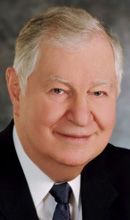 Henry BlackabyBut it’s something the people of God have to do, said Henry Blackaby, co-author of the Experiencing God discipleship curriculum.
Henry BlackabyBut it’s something the people of God have to do, said Henry Blackaby, co-author of the Experiencing God discipleship curriculum.
